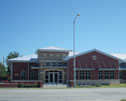The year 2010, much like 2009, has so far proved to be entirely unpredictable for our industry. Weather slowed work during the first couple of months but apparently created work for the following two. Then, the industry felt like it nearly came to a halt only to restart as summer began.
Ah, the joys of the U.S. roofing industry.
There are some lessons to be learned from this unpredictability—and from a changing marketplace.
For example, old business models don't work anymore. Roofing companies that simply relied on being low bidders in a new construction market have had to reinvent themselves; look at service, maintenance and reroofing markets; and, in some cases, create a sales force where none previously existed.
And managing cash is more important than ever. A management consultant I spoke with recently put it this way: The most difficult time for a small contractor who is not financially sound is when things start to get better. That contractor, he said, probably has exhausted a lot of cash, will be likely to take work at a low margin and will find it difficult—if not impossible—to get credit once jobs begin. If a customer is slow to pay, that could be the end of the business.
On a more positive note, we've learned how resilient this industry is. To be sure, hailstorms and heavy rains have helped in some markets, but somehow the industry manages, in its own way, to plug along. The demand for roofs, thankfully, is classically inelastic, which is to say people don't delay roof purchases when water is entering their homes or buildings. But there's more to the story than that.
Roofing contractors have learned during the past two years to smartsize, re-engage with their best customers, learn about new products coming into the marketplace, learn how to do government work and learn how to seek out new markets. In short, they're behaving like the prototypical entrepreneurs they are, and it's working.
Meanwhile, the industry's customers continue to postpone a lot of work until the economy improves. Once that happens, our resilient industry could quickly turn robust.
Bill Good is NRCA's executive vice president.



